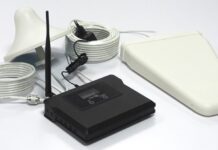Tech company Honeywell introduced its next-generation quantum computer, the System Model H1.
The H1 generation of computer, which uses trapped-ion technology, is strategically designed to be rapidly upgraded throughout its lifetime, said the company.
Honeywell said the computer initially offers 10 fully connected qubits, a proven quantum volume of 128 and unique features such as mid-circuit measurement and qubit reuse.
Quantum volume is a metric of the overall compute power of a quantum computer.
According to a report in TechCrunch, the H1’s quantum volume is higher than comparable efforts by IBM.
But it is far behind what trapped-ion quantum computing startup IonQ claimed earlier this month it was able to achieve with 32 qubits.
Honeywell said H1 is directly accessible to enterprises via a cloud application programming interface (API), as well as through Microsoft Azure Quantum, and alongside channel partners including Zapata Computing and Cambridge Quantum Computing.
Access to H1 can be gained through a subscription.
“Honeywell’s aggressive quantum computing roadmap reflects our commitment to achieving commercial scale for our quantum business. Our subscription-based model provides enterprise customers with access to Honeywell’s most advanced system available,” Tony Uttley, President of Honeywell Quantum Solutions, said in a statement.
“Honeywell’s unique methodology enables us to systematically and continuously ‘upgrade’ the H1 generation of systems through increased qubit count, even higher fidelities and unique feature modifications.”
Headquartered in Charlotte, North Carolina in the US, Honeywell employs close to 13,000 people across 20 locations including Bengaluru.




















